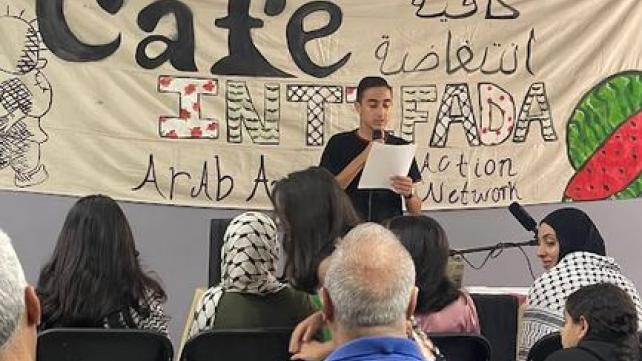
There are many examples of youth programming throughout the country that seeks to empower Muslim youth and is warmly embraced by students, parents, and community members alike. Recently, I had the opportunity to attend Café Intifada, an event organized by the Arab American Action Network Youth Program. The previous Café Intifada occurred in 2019 before the COVID-19 pandemic paused the event. The Arab American Action Network Youth Program is a paid initiative for youth aged 14 to 18 in the Chicago area. The program aims to educate and empower Arab-American youth, though it is open to all communities. Its mission is to raise awareness and amplify the voices of Arab-American youth, helping them become future activists and leaders. Participants receive political education, leadership training, and workshops in art and writing.
The program also covers racism, oppression, and historical contexts of various countries. Participants actively engage in campaigns against racial profiling and take on leadership roles within these initiatives. The program offers insights into the policing system, resistance, and resilience, and uses art as a tool for healing. Youth express themselves through spoken word, digital and physical art, music, and dance. The program features guest speakers, organizes community event field trips, and introduces participants to solidarity groups, helping them recognize the interconnected nature of systemic oppression and the importance of collective liberation.
Café Intifada celebrates the end of a semester of programming and showcases the work of the youth, allowing them to present their achievements to family, friends, and community members. What makes the event extraordinary is that it is entirely organized and led by the youth, who handle outreach, artwork design, performance of their poems, emceeing the event, signing in attendees, hosting, and even assisting with venue design and food.
Nadiah, a youth organizer, shares, “Our program’s strength lies in creating a third space for Arab youth to make friends and discuss topics they might not be able to in public schools. My favorite aspect of Café Intifada is that parents and the community can witness the youth’s work and understand the impact of the program on this specific age group.”
Programs like this are crucial for fostering a strong, vibrant future. Empowering youth involves a combination of support, encouragement, and opportunities for growth. To achieve that ends, youth programming must:
- Encourage education and lifelong learning by providing access to resources, including books, technology, and educational materials.
- Support academic pursuits involves encouraging youth to pursue their interests and offering help with academic challenges
- Foster critical thinking and problem-solving skills by promoting open dialogue and diverse viewpoints, encouraging curiosity, and critically questioning information.
- Build confidence and self-esteem by celebrating achievements, big or small, and help youth set and work toward personal goals
- Connecting them with mentors who can provide both advice and inspiration
- Offer feedback that includes constructive criticism and support
- Encourage participation in community service and involve youth in meaningful projects so they can see the positive effects of their contributions
- Promote leadership opportunities through training and hand-on opportunities at school or in community activities
- Foster creativity and innovation that supports artistic expression, encourage involvement in arts and music, and promote entrepreneurial thinking
- Support emotional and mental well-being by providing access to counseling and teaching healthy coping mechanisms for stress and emotions
- Educate them about their rights, about self-advocacy, and about involvement in causes they care about
- Create safe and inclusive spaces, ensuring environments where diversity and inclusion are valued and where open communication is encouraged
- Support financial literacy by teaching about money management, budgeting, saving, and financial planning
- Engage in collaborative projects by working together on initiatives and involving them in decision-making processes
Empowering youth involves a combination of support, encouragement, and opportunities for growth. By fostering an environment that nurtures their potential, we can help them become confident, capable individuals ready to make a positive impact on the world.
Check out these beautiful student posters that were showcased at this year’s Café Intifada event.
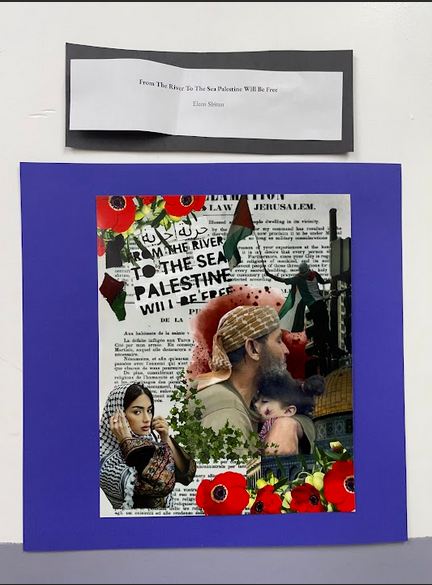
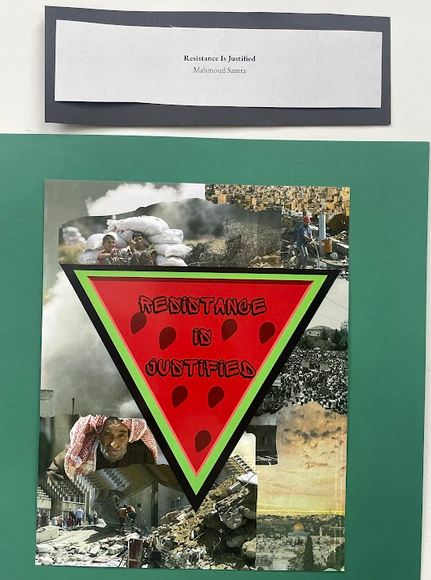
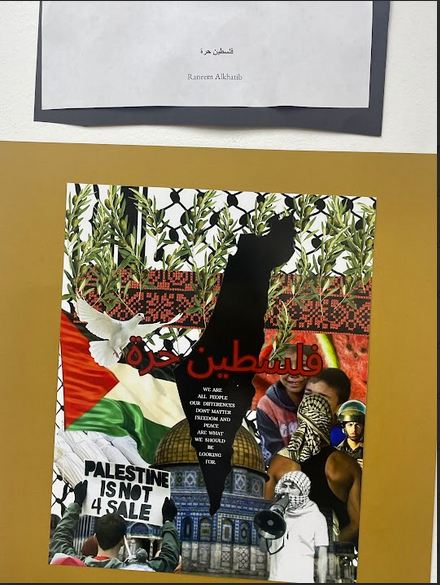
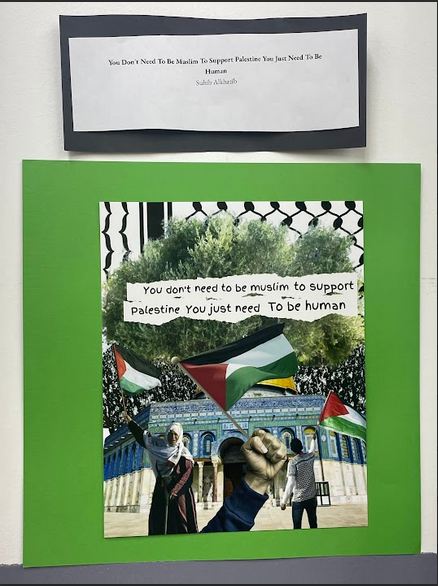
Miriam Mohamed is a mother to seven children and a granny to two cats! She loves trying new things and learning cool facts. She has taught in an Islamic school setting, has experience assisting children with special needs, and enjoys volunteering and being a part of the community. Miriam lives in Chicago with her beautiful flowering cherry tree and big family.



Add new comment